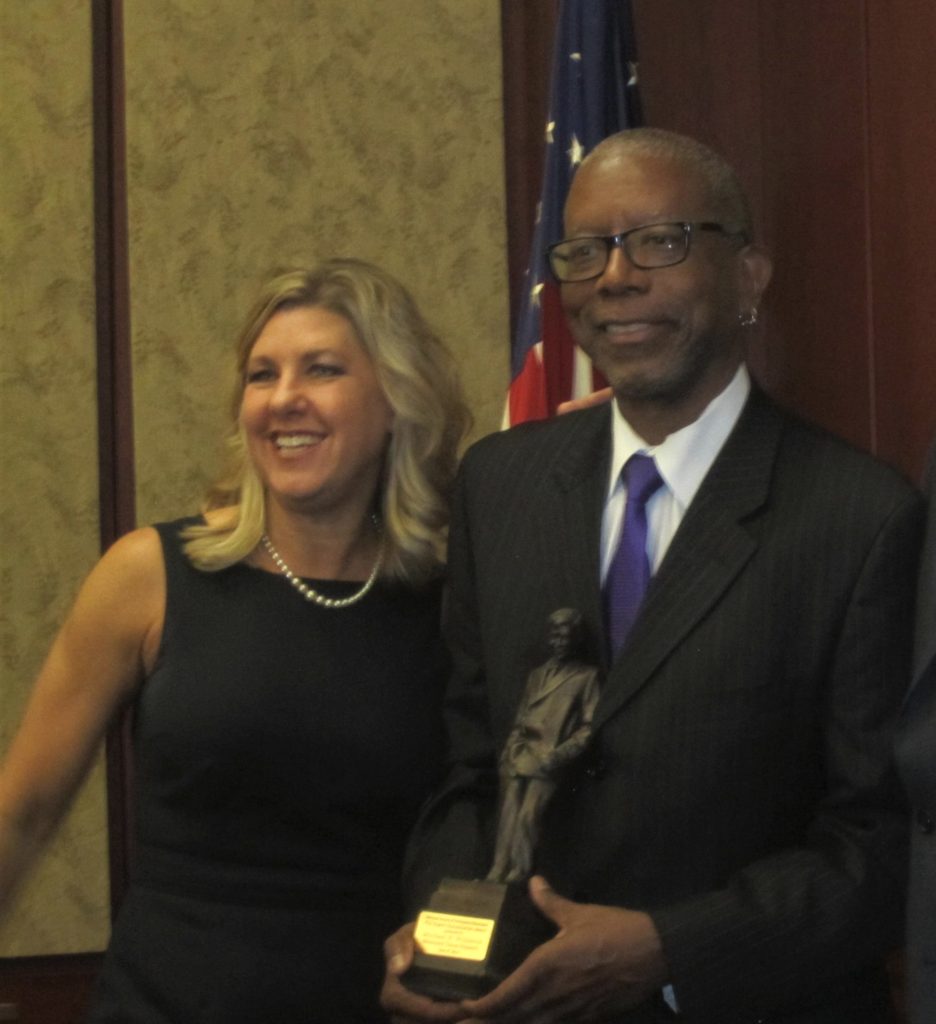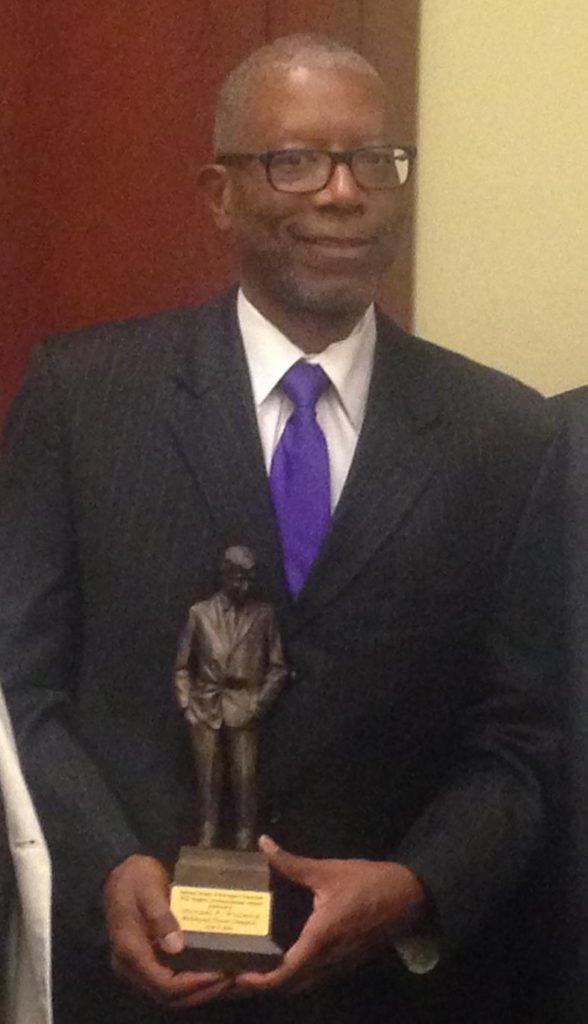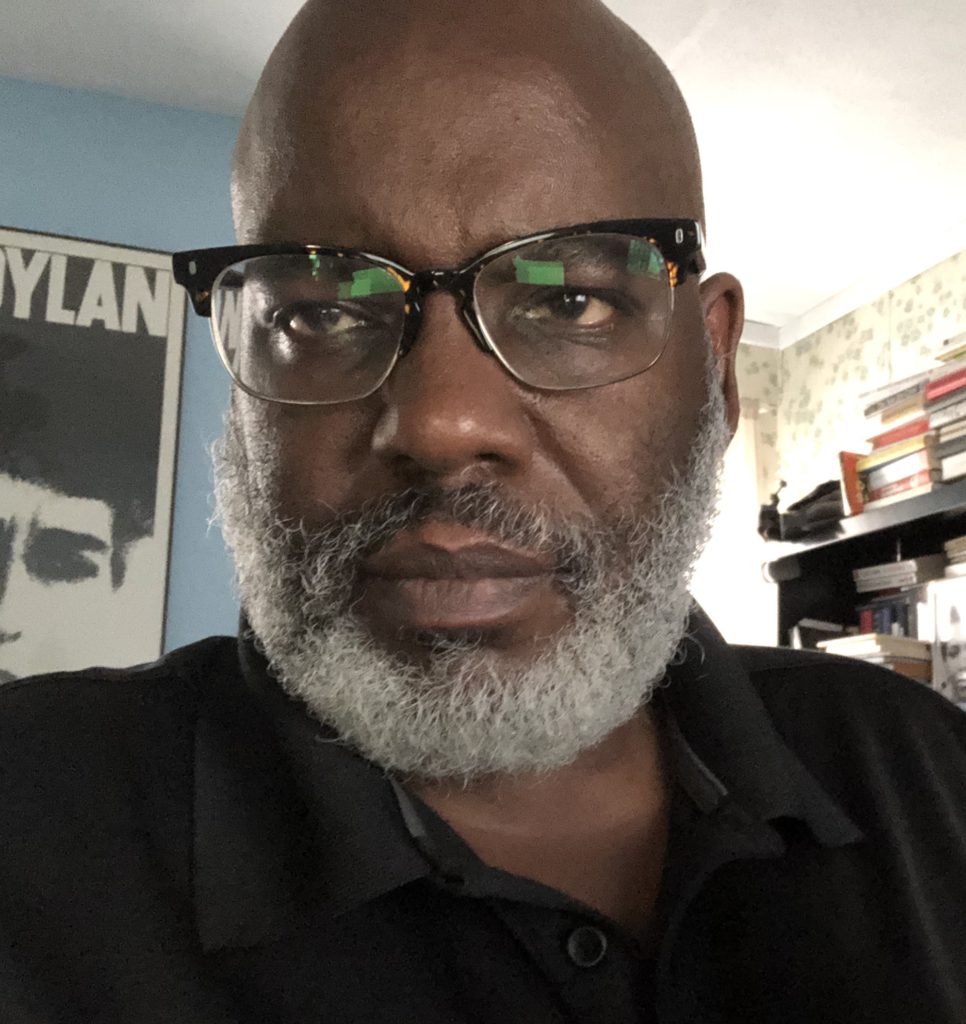
By Tony Norman
NSNC President
Michael Paul Williams is one of those columnists who makes other columnists exhale after reading him: “So, that’s how it’s done,” we sigh. Twice a week for more than three decades, the Richmond Times-Dispatch columnist has challenged the conventional wisdom about race, culture, and politics in a state that was once the capital of the Confederacy. He is both polarizing and beloved, but essential reading for everyone.
In 2014, the NSNC awarded him the Will Rogers Humanitarian Award. Michael Paul Williams was far from finished with his winning ways, though. In June, he was awarded the 2021 Pulitzer Prize for Commentary, the highest honor in our profession. We caught up with Michael Williams for a Q&A on the eve of a much-deserved vacation.
Tony Norman: When you were putting together your selection of columns for Pulitzer consideration, what was your criteria? Was it dictated by the passion of the times (protests against white supremacy in Richmond) or were they the columns that best showcased your observational skills and lucid writing?
Michael Paul Williams: Actually, my editors selected the columns for the Pulitzer package. They’re obviously better at that sort of thing than I am! The columns about the monuments would have been my choice, also. The social justice protests and the removal of the Confederate statues were such a defining moment in Richmond history.
TN: You’ve been a columnist for decades. How do you keep fresh and relevant for more than a generation into this game? What’s your advice to younger columnists or fellow vets inspired by your success?
MPW: I write off local news. “News,” by its very nature, is “fresh.” I’m also surrounded — well, spiritually and intellectually, given the pandemic — by a bevy of sharp young colleagues whose energy and engagement keep me sharp. My advice to any columnist is to listen to their gut and pursue topics they are both passionate and knowledgeable about. If you don’t care about what you’re writing about, neither will your reader.
TN: What goes into your selection of column subjects? Are there issues you are dying to tackle, but didn’t in the past, that now seem more likely now that you have the validation of a Pulitzer?
MPW: Again, it often goes back to my gut. If something makes me feel some kind of way — outraged, sad, inspired, hopeful — that’s like a Bat-Signal telling me it’s time to opine. If there was a topic worth pursuing, the lack of a Pulitzer on my resume should not have inhibited me from pursuing it. I can’t see the Pulitzer changing my decades-long approach to column writing. I’m writing to engage a specific set of readers who care about Richmond and Virginia. They will remain my focus.
That’s not to say that the validation of a Pulitzer isn’t huge. It’s gratifying and creates a tremendous responsibility moving forward. My colleague Kenya Hunter, at our Pulitzer celebration, eloquently described “the ancestral burden” that we carry as journalists at a newspaper that profited from the slave trade and otherwise endorsed or was complicit in white supremacy. There is power and honor, she said, “to being recognized at the highest level possible for holding that burden accountable.”
TN: Have the haters who pushed back against your column continued to rage after you’ve earned a Pulitzer? What is the nature of their complaint now? Does it make you laugh?
MPW: My detractors have been largely silent, or perhaps have been drowned out by all the positive vibes that have flowed my way since the announcement. Or maybe they’re simply letting me have this moment in relative peace. Some readers have offered congratulations even as they acknowledge that they often disagree with me. That meant a lot. Finally, the “haters” are the lifeblood of any columnist’s career; they’re among our most faithful readers! So I’m not going to hate on them. (Smile.)
TN: A prize of this magnitude must have an effect on you. What was the immediate effect and what are the long-term anticipated effects in terms of how you approach subjects?
MPW: The immediate effect has been overwhelming; there’s a surreal quality to it all. My editors obviously had confidence in my work or they wouldn’t have nominated me. But for me to actually receive this award seems like a dream, not only for me, but our newspaper and the city of Richmond. I sense a lot of collective pride. I’m trying to go about my job in the same way, except moreso, if that makes any sense. The recognition has heightened my commitment toward the work, but I don’t want to put undue pressure on myself. Metaphorically (since so much with me is about sports), I will continue to let decades of muscle memory kick in as I do my job. But this prize requires me to make sure those muscles are in tip-top shape.
TN: Virginia, and Richmond in particular, is a target-rich region for a columnist as perceptive as you, but I suspect much of the country never thought much about it until the racial upheaval of recent years, especially regarding Confederate monuments. In a perverse way, the controversy really gave you a platform to do what you do best. As a master columnist, do you ever feel both chagrined and inspired by such opportunities?
MPW: You’re right; Richmond is a heckuva news town. But for too long, it was written off as some sort of backwater — a place to dismiss with a convenient stereotype instead of seriously interrogating. I’m delighted to see people outside of our region finally realizing that there are lessons to be learned by examining the past and present of Richmond. Any columnist wants the place he or she writes about to be viewed as important and instructive to a larger narrative. That’s RVA today. As the nation discovers us, we need to keep endeavoring to gain a greater understanding about our hometown. The more that we learn about Richmond, the more we learn about America.

TN: In a way, you’re writing your column at the nexus of the American conversation about the past and the present when it comes to the discourse on race and democracy.
As a Black columnist in a field that remains scandalously monoculture even as the country continues to become more brown/beige/diverse by the day, what’s your advice about how to cultivate a universal readership without losing the particularity of the Black American experience? Were you ever tempted to second-guess your approach because of white Nativist reaction in Virginia in the past?
MPW: I know it has been a source of irritation to some of my readers that my subject matter so often has been about race and racism. But I think the Black experience in America is so informed by race and racism that it would be inauthentic for me to pretend otherwise. I’ve read that many white Americans can claim hardly any Black friends. In that context, I think cultivating a universal readership is important in providing readers with an African American’s perspective, even though we are not monolithic. And frankly, it’s my job to relate to all of our readers, not just a segment of them. I’ve never second-guessed my approach because this is who I am and this is what I care about. That more readers seem to be engaged in what I care about, at this point in time, is gratifying.
TN: When you compose your columns, do you do it at the keyboard with an outline in front of you or do you compose it longhand and transfer it over? How long does it take you to put a column together, including reporting and just assembling your thoughts?
MPW: No outlines. I’m not the most organized person you’ll ever meet. The process can lack a consistent rhyme or rhythm. Often, it’s like jazz. I get that feeling, that gnawing in the pit of my stomach, that tells me, “This is something you need to write about.” The thoughts will start to flow and bubble over; I’ll send myself text messages to capture them. I spend a lot of time thinking about my topic. All of this can happen over the course of two days. Of course, it’s always easy when you have a lead written in your head, but those days can be few and far between. Often, I have to sit in the discomfort of my uncertainty as the deadline approaches. But in the crunch time before the absolute deadline — and I know I’m not alone here — there’s a clarity that happens.
It’s also helpful to have an editor who’s on your wavelength. The back and forth between me and my editor, Katy Evans, can be invaluable in extracting nuggets that I didn’t necessarily know were buried in my brain.
TN: One day you’re going to retire. What do you want your successor to know about the art of column writing that you wish you had known decades ago when you started?
MPW: Well, columns and column writing can be as distinctive as fingerprints; we all possess so many divergent personalities, styles, points of view, and values. I don’t know if I have any one-size-fits-all advice except be authentic, don’t pander, and embrace both the love and the hate you receive as validation.

Tony Norman is NSNC President (2020-2022) and an award-winning columnist with the Pittsburgh Post-Gazette.

